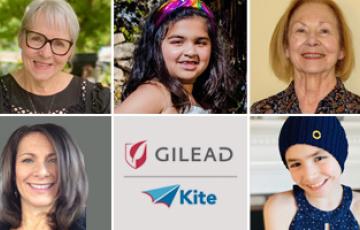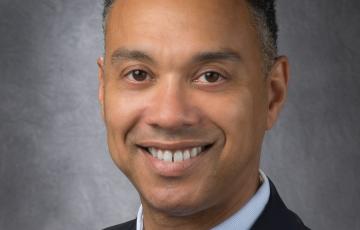Search Results
Idecabtagene vicleucel
Idecabtagene vicleuce is indicated for the treatment of adult patients with relapsed or refractory multiple myeloma after two or more prior lines of therapy, including an immunomodulatory agent, a proteasome inhibitor, and an anti-CD38 monoclonal antibody.
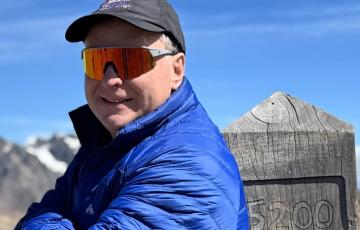
From Office to Andes: LLS CFO Takes the Mission to New Heights
JR Miller at Palomani Pass, the highest point on the Ausangate trek in Peru at 5,200 meters (17,060 feet)
After 25 years of service to The Leukemia & Lymphoma Society (LLS), JR Miller has seen the mission from nearly every angle – donor, volunteer, fundraiser, advocate, and executive. But this year, he added something new to that list: trekker.
How Surviving Cancer Gave me a Second Birthday
Birthdays are a time for celebration as we become one year older, wiser, and more mature. For cancer survivors, we carry with us another date that symbolizes even more. This is our second birthday. Similar to an actual birthday, this day often carries feelings of even more nostalgia and remembrance. However, it can also grip us with feelings of dread, anxiety, and even post-traumatic stress disorder (PTSD). No matter how far along we are in our journey through survivorship, our second birthday pulls at us to stop and compassionately remember all that we’ve been through.

Meet the Researcher: Charlene Liao, PhD
Our “Meet the Researcher” series on The LLS Blog shares what our outstanding LLS-funded researchers are working on, the incredible impact they’re making in the fight against blood cancers, and what inspires their efforts to find better treatments and cures.
Improving targeted adoptive cell therapy of myeloma
Dr. Madhav Dhodapkar, M.D., of Winship Cancer Institute of Emory University, Atlanta, leads a multi-institutional, multi-disciplinary LLS Specialized Center of Research team focused on advancing new immunotherapies for patients with multiple myeloma. Their goal is to improve the effectiveness of CAR T-cell immunotherapy, which engineers the patient’s T cells to find and kill cancer cells. The CAR-T they are studying targets a protein called BCMA found on the surface of all myeloma cells.Daratumumab and hyaluronidase-fihj
Generic name Daratumumab and hyaluronidase-fihj Brand name(s), other common name(s) Darzalex FasproTM Drug type Monoclonal antibody How the drug is given Injection, for subcutaneous use Indications and UsageDarzalex FasproTM is a combination of daratumumab, a CD38-directed cytolytic antibody, and hyaluronidase, an endoglycosidase, and is FDA approved for the treatment of adult patients with multiple myeloma:
A Decentralized Randomized High-Fiber Dietary Trial to Improve Outcomes in Newly Diagnosed Myeloma
We will conduct a decentralized randomized controlled trial of a high-fiber plant-based dietary intervention among patients with multiple myeloma undergoing induction chemoimmunotherapy. The study will assess whether the intervention (meals and virtual coaching) leads to improved rates of complete response, and quality of life mediated by improvements in weight and insulin resistance.Kimberly
When my husband, NFL linebacker Elijah, was diagnosed with multiple myeloma in 2005, shortly after retiring from the Oakland Raiders, we were stunned. Neither of us had ever heard of it.
Life with multiple myeloma became an instant roller coaster. As his caregiver I knew it was my job to learn as much as possible about what we were facing, while trying to keep things normal for our two young sons.
Systematic multiomic profiling of tumor and immune cells for non invasive detection of early myeloma
Multiple myeloma remains largely incurable and there is consensus that the pathway to cure cancer involves treating patients earlier. Thus, there is an unmet need to develop methods for early detection of pre-malignant disease and to help tailoring treatment for patients with smoldering myeloma. We aim to develop new methods for minimally invasive characterization of patients with smoldering myeloma in order to treat disease causation instead of symptomatology and increase curability rates.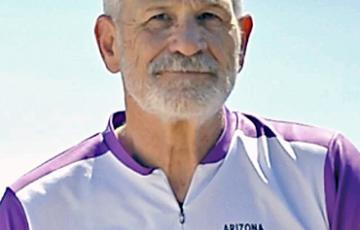
Andy
Meet Andy. Multiple Myeloma Survivor. Lawyer. Andy lost his first wife to multiple myeloma. Incredibly, twelve years later, Andy himself was struck by the same disease. Today, thanks in part to his treatment involving stem cell transplantation, he is living a richer, fuller life in ways that are hard to imagine.
Targeting acetyl-CoA synthetase 2 to remodel obesity-evoked inflammatory microenvironment in myeloma
Our proposal aims to develop a novel strategy to improve therapeutic efficacy for patients with multiple myeloma by remodeling obesity-induced inflammatory microenvironment. We hypothesize that acetyl-CoA synthetase 2, which is stimulated by obesity, enhances inflammatory cytokine production from myeloma cells, leading to an inflammatory niche where anti-tumor function of CD8+ T cells is dampened, and tumor growth is promoted. Our study will be the first to explore a novel insight for how obesity impacts the interaction between myeloma cells and microenvironment.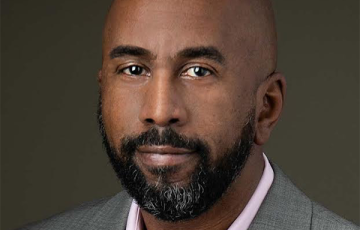
Bryon
In 2017, during a pickup basketball game at the local gym, Bryon Daily was beginning to feel his age, playing against 20-year-olds. A former college track athlete in his early 50s, this fatigue felt different. He also fractured his finger during a routine pass in the game. Bryon’s primary doctor at Kaiser ordered labs including blood and urine, that showed impairment in his protein levels and referred him to a urologist then a hematologist.
Julie
“About six years………”
The doctor kept speaking but the words evaporated into thin air as Julie quickly did mental math to figure out what ages her children would be when she died. Flashes of all the events she would miss flitted across her mind. Julie had been diagnosed with multiple myeloma.
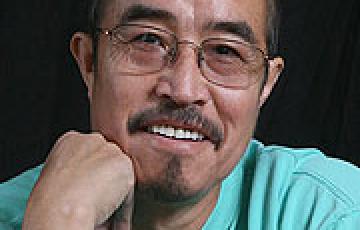
Manual
Since being diagnosed with myeloma, I've been glad to have the assistance of LLS. For one thing, research they helped fund resulted in Velcade®, one of the drugs I'm being treated with. For another, their financial assistance program has come in very handy during my illness. Thank goodness for LLS. Manual Tapia | Multiple Myeloma Survivor You can tell just by looking at him that Manuel has a positive outlook. It has served him well since his diagnosis with multiple myeloma.
Where Blood Cancer Meets Nature: Why This Scholarship Recipient Is Saving the Earth
When we think about the future, a lot can feel uncertain—especially as a teenager or young adult (AYA) with blood cancer.
We get it.
Developing selective inhibitors of the b-catenin/BCL9 transcriptional complex for myeloma therapy
The b-catenin/BCL9 transcriptional complex, is a novel dependency in multiple myeloma (MM). Disruption of this complex inhibits MM cell growth in culture and in MM xenograft models. Development of potent selective b-catenin/BCL9 inhibitors will provide valuable tools to further investigate their mechanism of MM inhibition. We have established a chemistry, structural biology, and molecular pathology platform to facilitate novel inhibitor development, and explore its translational potential in MM.Targeting HSP70 to Immune Effector Cells to Overcome the Immune Suppressive Myeloma Microenvironment
Development of a strong anti-cancer immune response requires coordinated action of the innate and adaptive parts of the immune system, but cancer cells alter their environment to suppress virtually every step in this process, which promotes cancer progression and treatment resistance. One promising strategy could be to target Heat shock protein 70 (HSP70), which plays an important role in both innate and adaptive immunity, and we therefore developed a series of novel antibodies to HSP70, one of which cured mice of multiple myeloma.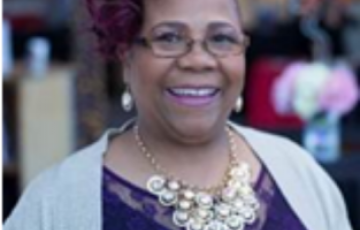
Sharon
Sharon Clark was diagnosed with multiple myeloma in 2015 after experiencing unusual symptoms like aches and fatigue. Her treatment has included multiple courses of oral anti-cancer medication, countless injections, infusions and hospitalizations, a stem cell transplant and two spinal surgeries to repair cracked bones caused by the myeloma. She continues to be treated with an LLS-supported oral anti-cancer therapy to keep her cancer in remission.

